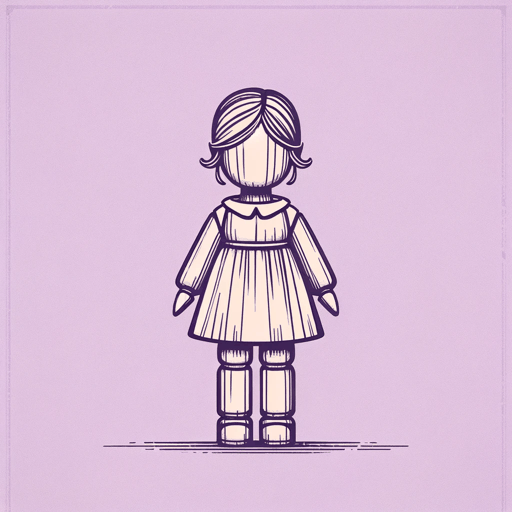61 pages • 2 hours read
Padma VenkatramanBorn Behind Bars
Fiction | Novel | Middle Grade | Published in 2021A modern alternative to SparkNotes and CliffsNotes, SuperSummary offers high-quality Study Guides with detailed chapter summaries and analysis of major themes, characters, and more.
Summary and Study Guide
Overview
Born Behind Bars (2021) is a middle-grade novel by Padma Venkatraman. The story centers on a boy named Kabir. Born in an Indian women’s prison, he should have been released at age six but is still there at age nine, when a new warden releases him into the hands of a dangerous stranger. Kabir must practice courage, self-love, and persistence to escape the stranger’s clutches, make new friends, locate his estranged family, and fight to free his mother, who was innocent and should never have been in prison. Through his journey, Kabir learns the power of family and friendship, resilience, and teamwork.
This guide refers to the paperback edition published by Nancy Paulsen Books in 2023.
Content Warning: Born Behind Bars and this guide refer to imprisonment, abuse, death, segregation, and prejudice.
Plot Summary
Nine-year-old Kabir was born in an Indian women’s prison and has lived there all his life with his mother, Amma. Sharing their cell are three other women, whom Kabir has nicknamed Grandma Knife, Aunty Cloud, and Mouse Girl (who is new). Kabir wishes he and Amma could be free and experience the world outside, which he knows about only from stories, pictures, and the small outdoor area he’s allowed to walk through on his way to “jail school” each weekday. Five other children live in the prison too, but they’re younger than Kabir because technically, the prison is supposed to release them at age six to family, orphanages, or other arrangements. Kabir doesn’t realize this until a new warden starts working there and says Kabir must leave, without Amma, by the end of the week. Kabir is heartbroken and terrified because he doesn’t know how to live outside and doesn’t want to be without Amma. His dad used to visit when Kabir was a baby, but he no longer comes because he moved to another city to make more money so that he could hire a lawyer to free Amma, who is innocent. He even stopped writing. The authorities tell Kabir that they’re trying to find some of his family to take him in.
Kabir’s teacher, Bedi Ma’am, teaches him as much as she can to prepare him for his release. Grandma Knife teaches him the value of self-defense. Amma tells Kabir to be good, even if the legal system doesn’t always reward this, especially for low-caste people like them.
Soon, the authorities claim to have located Kabir’s uncle on his father’s side, a man Kabir never heard of before. They release him to Uncle, who tries to sell him into human trafficking. A woman who works with Uncle sees Kabir and, finding Uncle’s behavior suspicious, secretly tries to find Kabir’s real family. Kabir’s parents used to work at the same place, so the woman recognizes that Kabir resembles two of her former coworkers and uses this as a starting point.
Kabir throws hot coffee in Fake Uncle’s face and runs away to avoid being sold. He meets a girl named Rani, who has a parrot. Rani teaches him to sleep beneath a tree, make money by singing, wash in public restrooms, and hunt and forage for food. After Rani’s father died, she was separated from her mother because her mother’s family tried to force Rani into a child marriage. Rani and Kabir return a wealthy woman’s lost earring and use the reward money to buy bus tickets to Bengaluru, where Kabir’s grandparents live. They don’t know that Kabir exists, however: Because of religious differences (he’s Muslim, while Amma is Hindu), Kabir’s father didn’t tell his parents that he was married or had a child.
After arriving in the new city of Bengaluru, Kabir and Rani go to the mosque where Kabir’s grandparents worship, hoping to find them. Rani spots a man who looks like Kabir. They follow him and then spy on his family through his apartment window. They look happy, but Kabir’s sure they’re not related to him. The next morning, they speak to the man outside his store, but an angry mob appears, calling for the banishment of Tamil people from the state, which is where Kabir, Rani, and the man were born. The man hides, and Kabir and Rani create a diversion. The man calls the police, who dismantle the mob and connect Kabir and Rani with a woman who runs an alternative, residential school, which Rani moves into. The shopkeeper posts Kabir and Rani’s picture and names online. A coworker of Fake Uncle’s alerted Kabir’s grandparents of his existence, so when they see his name online, they call the police, and Kabir goes to live with them. They tell him that his father died years ago in a plane crash, which is why he stopped writing. Having lost their son, Patti and Thatha no longer feel prejudice like they used to because of religious differences. They don’t care that Amma is Hindu or that Kabir is both Hindu and Muslim; instead, they accept their new family because they now understand the value of it.
Kabir settles into new routines with his grandparents, Patti and Thatha, but he still doesn’t feel truly free or at home without Amma. He starts calling lawyers to ask for help, but neither he nor his grandparents can pay. He and a new friend, Lakshman, go to the school that Rani enrolled in, run by a woman named Viji Aunty. She calls her sister-in-law, Tanvi Ma’am, who works at a law firm for people who can’t pay. She learns that even if Amma were guilty, she has already served more than the maximum sentence for the theft she was accused of and is therefore eligible for immediate release. Several weeks later, officials release Amma from prison, and Kabir, Patti, and Thatha go to pick her up and bring her home to live with them.
Related Titles
By Padma Venkatraman
Featured Collections
Action & Adventure Reads (Middle Grade)
View Collection
Asian American & Pacific Islander...
View Collection
Books that Teach Empathy
View Collection
Class
View Collection
Class
View Collection
Community
View Collection
Contemporary Books on Social Justice
View Collection
Family
View Collection
Friendship
View Collection
Indian Literature
View Collection
Nation & Nationalism
View Collection
Politics & Government
View Collection
Poverty & Homelessness
View Collection
Realistic Fiction (Middle Grade)
View Collection
School Book List Titles
View Collection
The Journey
View Collection
Valentine's Day Reads: The Theme of Love
View Collection



